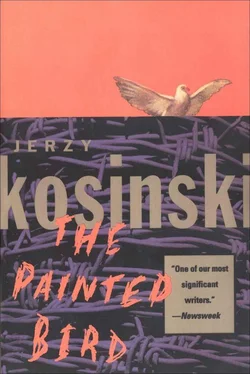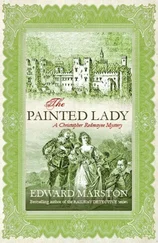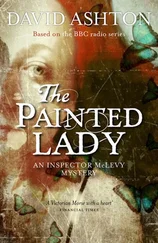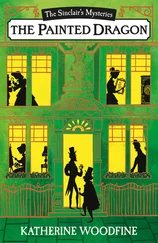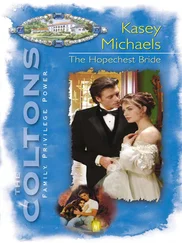Jerzy Kosiński - The Painted Bird
Здесь есть возможность читать онлайн «Jerzy Kosiński - The Painted Bird» весь текст электронной книги совершенно бесплатно (целиком полную версию без сокращений). В некоторых случаях можно слушать аудио, скачать через торрент в формате fb2 и присутствует краткое содержание. Год выпуска: 1965, ISBN: 1965, Жанр: Детская проза, на английском языке. Описание произведения, (предисловие) а так же отзывы посетителей доступны на портале библиотеки ЛибКат.
- Название:The Painted Bird
- Автор:
- Жанр:
- Год:1965
- ISBN:978-0-8021-9575-3
- Рейтинг книги:4 / 5. Голосов: 1
-
Избранное:Добавить в избранное
- Отзывы:
-
Ваша оценка:
- 80
- 1
- 2
- 3
- 4
- 5
The Painted Bird: краткое содержание, описание и аннотация
Предлагаем к чтению аннотацию, описание, краткое содержание или предисловие (зависит от того, что написал сам автор книги «The Painted Bird»). Если вы не нашли необходимую информацию о книге — напишите в комментариях, мы постараемся отыскать её.
The Painted Bird — читать онлайн бесплатно полную книгу (весь текст) целиком
Ниже представлен текст книги, разбитый по страницам. Система сохранения места последней прочитанной страницы, позволяет с удобством читать онлайн бесплатно книгу «The Painted Bird», без необходимости каждый раз заново искать на чём Вы остановились. Поставьте закладку, и сможете в любой момент перейти на страницу, на которой закончили чтение.
Интервал:
Закладка:
My master was widely respected and often, invited to local weddings and celebrations. Sometimes, if the children were well and neither his wife nor his mother-in-law objected, I was also taken along. At such receptions he ordered me to display my urban language to the guests, and to recite the poems and stories I had learned before the war from my mother and nurses. Compared to the soft, drawling local speech, my city talk, full of hard consonants which rattled like machine-gun fire, sounded like a caricature. Before my performance I was forced by my farmer to drink a glass of vodka at one gulp. I stumbled over feet which tried to trip me and barely reached the center of the room.
I started my show at once, trying to avoid looking at anyone’s eyes or teeth. Whenever I recited poetry at great speed, the peasants opened their eyes wide in amazement, thinking that I was out of my mind and that my fast speech was some sort of infirmity.
They were entirely convulsed by the fables and rhymed stories about animals. Listening to stories about a goat traveling across the world in search of the capital of goatland, about a cat in seven-league boots, the bull Ferdinand, Snow White and the Seven Dwarfs, Mickey Mouse, and Pinocchio, the guests laughed, choking on their food and sputtering vodka.
After the performance I was called to one table after another to repeat some poems, and was forced to drink new toasts. When I refused, they poured the liquor down my throat. Usually I was quite drunk by the middle of the evening and hardly knew what was going on. The faces around me began to take on the features of the animals in the stories I recited, like some live illustrations in the children’s books which I still remembered. I felt as though I were falling down a deep well with smooth, moist walls coated with spongy moss. At the bottom of the well, instead of water, there was my warm, secure bed where I could safely sleep and forget about everything.
The winter was ending. I went every day with my farmer to fetch wood from the forest. Warm moisture filled the air and swelled the woolly mosses hanging from the boughs of great trees like graying, half-frozen rabbit skins. They were soaked with water, dripping dark drops over the sheets of torn bark. Small streams spilled in every direction, gamboling here and diving there under swampy roots to emerge and playfully continue their erratic childlike scamper.
A neighboring family held a big wedding reception for their handsome daughter. Peasants, dressed in their Sunday best, danced in the barnyard, which had been swept clean and decorated for the occasion. The groom followed ancient tradition by kissing everyone on the mouth. The bride, dizzy from too many toasts, wept and laughed in turns, paying little attention to men who pinched her buttocks or rested their hands on her breasts.
When the room emptied and the guests started dancing, I rushed to the table for the meal I had earned by my performance. I sat in the darkest corner, anxious to avoid the jeers of drunks. Two men entered the room with their arms over each other’s shoulders in a friendly hug. I knew them both. They were among the more prosperous farmers in the village. Each had several cows, a team of horses, and choice pieces of land.
I slid behind some empty barrels in the corner. The men sat on a bench by the table, still loaded with food, and talked slowly. They offered each other portions of food and, as was the custom, avoided each other’s eyes and kept grave faces. Then one of them slowly reached into his pocket. While picking up a piece of sausage with one hand, he slid out a knife with a long pointed blade with the other. Then he plunged it with all his strength into the back of his unsuspecting companion.
Without looking back he left the room munching the sausage with relish. The stabbed man tried to rise. He looked around with glassy eyes; when he saw me he tried to say something, but all that came out of his mouth was a half-chewed piece of cabbage. Once more he tried to stand up, but he wobbled and slid gently between the bench and the table. Making sure that there was no one else about, and trying in vain to stop trembling, I scurried out of the half-open door like a rat and ran to the barn.
In the dusk, village lads were grabbing girls and pulling them into the barn. On a pile of hay a man showing his buttocks had a woman spreadeagled on her back. Drunks stumbled across the threshing yard, cursing to each other and vomiting, harassing the lovers and waking the snorers. I pried off a board in the rear of the barn and squeezed through the opening. I ran to my farmer’s barn and quickly scrambled onto the heap of hay in the stable which was my sleeping quarters.
The body of the murdered man was not removed from the house immediately after the wedding. It was placed in one of the side rooms while the dead man’s family assembled in the main room. Meanwhile, one of the older village women had bared the left arm of the corpse and washed it with a brown mixture. The men and women suffering from goiter entered the room, one by one, the ugly sacks of inflated flesh hanging under their chins and spreading over their necks. The old woman brought each of them to the body, made some involved gestures over the afflicted part, and then lifted the lifeless hand to touch the swelling seven times. The patient, pale with fright, had to repeat with her, “Let the disease go where this hand will be going.”
After the treatment the patients paid the dead man’s family for the cure. The corpse remained in the room. The left hand rested on his chest; a holy candle had been placed in the stiff right hand. By the fourth day, when the odor in the room became stronger, a priest was summoned to the village and burial preparations started.
Long after the funeral, the farmer’s wife still refused to wash the bloodstains from the room of the murder. They were clearly visible on the floor and table, like a dark rust-colored fungus embedded in the wood forever. Everyone believed that these stains, testifying to the crime, would sooner or later draw the murderer back to the spot against his will and lead to his death.
However, the murderer, whose face I remembered very well, frequently dined in the same room where he had murdered, gorging himself on the ample meals served there. I could not understand how he could remain unafraid of these bloodstains. I often watched him with morbid fascination as he walked over them, imperturbably smoking his pipe or taking a bite of pickled cucumber after a glass of vodka downed in one gulp.
At such times I was as tense as a drawn slingshot. I awaited some shattering event: a dark chasm that would open under the bloodstains and swallow him without a trace, or a seizure of St. Vitus’s dance. But the murderer trod fearlessly over the stains. Sometimes at night I wondered if the stains had lost their power of vengeance. After all, they were somewhat faded now; kittens had dirtied them, and the woman herself, forgetting her resolution, had often mopped the floor.
On the other hand, I knew that the workings, of justice were often exceedingly slow. In the village I had heard a tale about a skull which tumbled out of a grave and proceeded to roll down an incline, in between the crosses, carefully avoiding beds of blooming flowers. The sexton tried to stop the skull with a spade, but it evaded him and headed toward the cemetery gate. A forester saw it and also tried to stop it by shooting at it with his rifle. The skull, quite undaunted by all the obstacles, rolled steadily down the road leading to the village. It waited for the opportune moment and then threw itself under the hooves of a local farmer’s horses. They bolted, overturned their cart, and killed the driver on the spot.
When people heard about the accident they were curious and investigated the matter further. They discovered that the skull had “jumped” out of the grave of the older brother of the accident victim. Ten years earlier, the older brother was about to inherit the father’s property. The younger brother and his wife were obviously envious of his good fortune. Then one night the older brother died suddenly. His brother and sister-in-law decided on a hasty burial, not even allowing the relatives of the deceased to visit the body.
Читать дальшеИнтервал:
Закладка:
Похожие книги на «The Painted Bird»
Представляем Вашему вниманию похожие книги на «The Painted Bird» списком для выбора. Мы отобрали схожую по названию и смыслу литературу в надежде предоставить читателям больше вариантов отыскать новые, интересные, ещё непрочитанные произведения.
Обсуждение, отзывы о книге «The Painted Bird» и просто собственные мнения читателей. Оставьте ваши комментарии, напишите, что Вы думаете о произведении, его смысле или главных героях. Укажите что конкретно понравилось, а что нет, и почему Вы так считаете.
